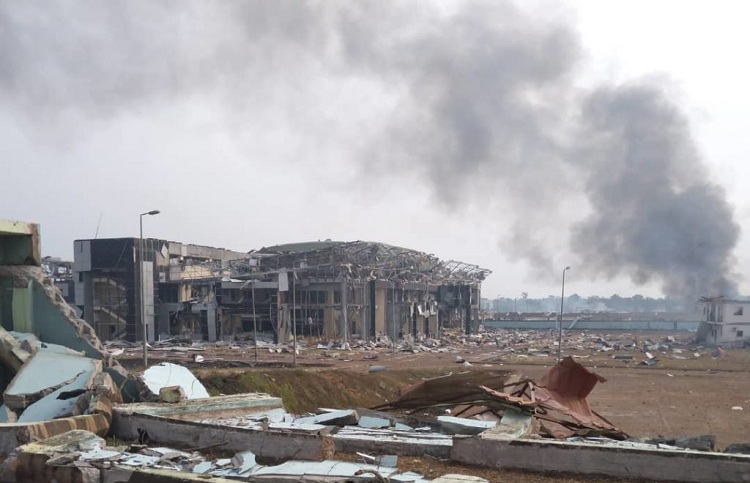The Diplomat
The Spanish Agency of International Cooperation for Development (AECID) sent yesterday a shipment of humanitarian aid to the city of Bata (economic capital of Equatorial Guinea) to try to alleviate the effects of last Sunday’s explosions in the Mondong Nkuantoma barracks, which caused a hundred deaths and more than 600 wounded, according to official figures.
The shipment, “with which Spain is responding to the appeal for help and to the needs expressed by the Equatoguinean authorities”, consists mainly of medicines and medical supplies worth approximately 60,000 euros, according to the Ministry of Foreign Affairs. The humanitarian operation is part of the European initiative Team Europe, which will co-finance the transport of the humanitarian cargo to its destination.
This shipment, which will arrive today in Bata, will be delivered by the Spanish consulate and the head of the AECID Office to the Ministry of Health and Social Welfare of the Republic of Equatorial Guinea in order to support the care of the people affected and, in particular, those being treated in the hospitals of Bata, the most populated city in Equatorial Guinea.
The Secretary of State for International Cooperation, Ángeles Moreno Bau, and the director of the AECID, Magdy Martínez Solimán, went yesterday to the Torrejón de Ardoz Air Base (Madrid), from where the humanitarian flight departed, to supervise the shipment. “The Government is committed to the people of Equatorial Guinea and, specifically, to those who have suffered the consequences of the explosion in Bata”, declared Moreno Bau. “We wanted to respond as soon as possible to the emergency appeal of the Equatoguinean authorities”, she added.
For his part, the ambassador of Equatorial Guinea, Miguel Edjang Angue, who also came to Torrejón de Ardoz, thanked the Spanish aid, which is a “symbol of the good relationship of the two states,” and Spain’s commitment to the people of Bata.
The latest official data on the tragedy speak of at least 98 dead and 615 injured. According to the government of Teodoro Obiang Nguema, the first investigations point to a fire caused by a farmer in the vicinity of the military barracks, where the flames were displaced by the wind. The explosions destroyed all the houses, installations and vehicles within their radius of action.







